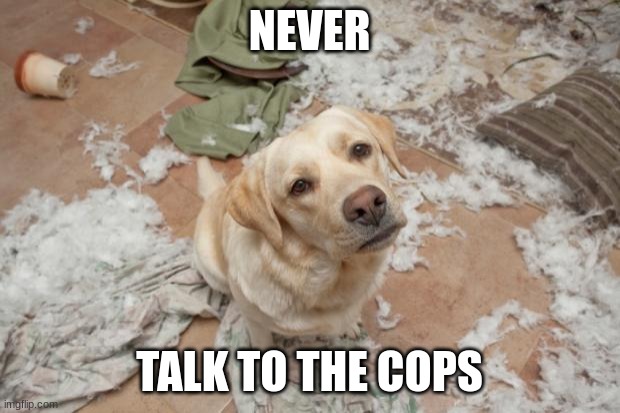What to say to policeBY DTI-ADMIN | 2:05 AM
12 July 13
When involved in a lethal-force incident, where you fired shots, otherwise attempted to apply deadly force, or even brandished a gun without firing, you’ll likely be confronted by police a short time later. They’re just doing their job, but you need to be the one to look after your own best interests.
In light of the recent “Salinas Case” ruling by the US Supreme Court, my advice to students in this regard has changed only slightly. In any event, it bears reiterating.
I’ve recently consulted with a group of distinguished a lawyers, who are also my friends and colleagues, on this subject, and what follows is in general agreement by all:
Simply “remaining silent” is not sufficient, by itself, to assure your rights and best interests are preserved. Interesting that we live in a country where you have to speak, in order to assert your right not to speak! And, once one stops answering police questions and demands that his lawyer be present before continuing, he shouldn’t start up again prior to his lawyer arriving. When he does, we get into an ambiguous situation, where the prosecution can later claim that, having asserted the right to remain silent at one point, the defendant subsequently changed his mind, thus, in effect, waiving his rights.
In addition, one should not wait until he is arrested to invoke his rights. Any time you are party to a police investigation, certainly when you are “Mirandized,” your rights need to be unmistakably, unilaterally invoked, and without delay!
Invocation of your 5th Amendment rights to decline to answer questions and have your lawyer personally present before questioning resumes must be unconditional and unambiguous. “Do you think I should have an attorney?” won’t suffice!
No need to be snotty, but you must be clear, and you must mean it! Confusion and ambiguity are always the enemy! Slam the door shut with a clear, unequivocal statement that you wish to exercise your 5th Amendment rights, now. Don’t ask them what they think!
Insisting that police call an ambulance for you that will take you to a hospital may also be a good strategy. Most will agree that going to a hospital to be checked-over is probably good advice for anyone who has been involved in a lethal-force incident.
So, here is my advice when confronting arriving police in the wake of a lethal-force incident:
Palms out at chest-level, no weapons in sight:
1) “Officers, thank God you’re here!”
2) “I’m the one who called.”
3) “Those men:
(a) attacked us,
(b) tried to murder us,
(c) We were in fear for our lives”
4) “I will sign a complaint”
5 “I’m happy to talk with you when my lawyer is present. I absolutely request my attorney, and I am respectfully invoking my 5th Amendment Rights to decline to answer any questions until he is personally present, sir.”
It is appropriate to call officers’ attention to:
(a) evidence that may not be obvious,
(b) witnesses who may not be obvious,
(c) danger that may not be obvious (eg: an armed suspect still in the area)
It is also appropriate to produce ID.
Always be polite and non-threatening, but take a deep breath and speak clearly. Don’t mumble and don’t become chatty.
Finally, when you are “Mirandized,” the officer will probably ask you, “Do you understand your rights, as I’ve explained them to you?”
The best answer is, “Officers, I’m not answering that question, nor any other, until my lawyer is here, nor will I sign, nor initial, any document.”
We could go on for many more pages, but the foregoing pretty much sums it up. You must protect yourself, as no one else will!
“After victory, tighten the straps on your helmet.”
Tokugawa Ieyasu, third and final “Great Unifier” of Japan, founder of the Tokugawa Shogunate
/John




 Reply With Quote
Reply With Quote






